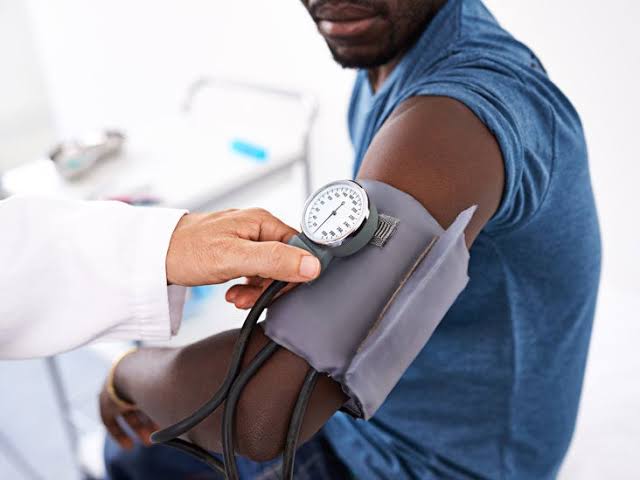To stay healthy this year, there are five medical tests you must do . According to Dr Chinasa of Lifestyle Medicine Practice on her Instagram handle, ariellahealthandfitness, they are:
A Full Blood Count Test
Join our WhatsApp ChannelFull blood count (FBC) is a very common blood test that is also sometimes called a complete blood count (CBC) or full blood examination (FBE). It is a test for general health, but it can also provide information about a range of conditions.
A full blood count test looks at the number, types and sizes of different cells in your blood, including:
Red blood cells, which carry oxygen around the body
White blood cells, which fight infection
Platelets, which help blood clot.
It also measures haemoglobin, the protein that carries oxygen around the body and is found in red blood cells.
This test is used to screen for, help diagnose, and monitor a variety of conditions. It can be used as part of routine medical testing, or to examine specific issues such as:
•Infection
•Anaemia
•Tiredness or weakness
•Bleeding or clotting problems
•Exposure to toxic substances monitoring response to treatment.
Many medical conditions can affect the full blood count. Blood cells can also be affected by some medications and some vitamin or mineral deficiencies.
A Fasting Blood Sugar/Glucose Test
Blood glucose tests are also sometimes called blood sugar tests.
Glucose is a simple sugar that supplies energy for your body. Blood glucose tests measure the amount of glucose in your blood. They are generally taken at a pathology collection centre.
A blood glucose test may be done: after you have fasted (not eaten for several hours).
without any special preparation (this is called a random or non-fasting blood glucose test) as part of a test called an oral glucose tolerance test (OGTT).
Blood glucose tests are usually used to check for major or monitor diabetes.
Mostly for people who are at risk of developing diabetes, have symptoms of diabetes, or have had test results suggesting they may have diabetes.
Additional diabetes tests, such as the HbA1c test, may equally be needed.
A Fasting Lipid Profile Test – among other important medical tests
A cholesterol (or lipid profile) test looks at the various levels of cholesterol and other fats in the blood especially if you are 40 and above.
Lipids and cholesterol are fat-like substances in the body. If you have high levels of these fats, you are more at risk of a heart attack or stroke.
The test is one way of seeing if you are at risk and how you should be treated.
The test measures different things including:
The total amount of cholesterol in the blood;
The level of HDL-cholesterol (often called good cholesterol);
The level of LDL-cholesterol (often called bad cholesterol);
Triglycerides (another type of fat in the body).
If you have a high level of LDL-cholesterol and triglycerides, then you have an increased risk of heart disease and stroke.
If your levels of cholesterol and lipids go down, then your risk goes down too.
A Kidney Function Test- alongside other important medical tests
The kidneys are important because they filter waste from your body and regulate the salts in your blood. There are many reasons your kidneys may not work effectively. Kidney function tests can help check your kidney function and to monitor it over time.
Several blood and urine tests can provide information about your kidney function.
Kidney function tests are also known as a renal function or urea and electrolytes (U&E, EUC or UEC) tests.
Meanwhile, you are required to test:
creatinine and urea in your blood
albumin and creatinine in urine — this is usually described as UACR, or urine albumin: creatinine ratio
the estimated glomerular filtration rate (eGFR)
Other tests include:
urine tests to measure the by-products of metabolism;
electrolytes in blood — usually sodium, potassium, chloride or bicarbonate;
a full blood count.
Kidney tests are very important for people who have kidney disease, diabetes, high blood pressure or heart disease.
Prostate-specific Antigen (PSA) Test for Men/Mammogram Test For Women
The PSA (prostate-specific antigen) blood test can help detect or monitor prostate cancer, especially in men of 40 and above.
The prostate is a small gland at the base of the bladder in men. It is part of the male reproductive system and produces the protein PSA. PSA is released into semen but some also enter the bloodstream.
High levels of PSA can be caused by prostate cancer, but they are usually caused by other conditions.
If you have prostate symptoms, you might be asked to have a PSA test. It might help point in certain directions, but it doesn’t diagnose prostate cancer. The only way to do that is with a biopsy.
If you have been diagnosed with prostate cancer, the PSA test can help monitor your condition. When the levels go up, this suggests the cancer is growing. When they go down, this suggests it might be shrinking.
A mammogram is an X-ray of the breast. It’s a screening tool used to detect breast cancer. Together with regular clinical exams and monthly breast self-examinations, mammograms are a key element in the early diagnosis of breast cancer.
Even though thinking about getting one might make you uncomfortable, annual mammograms are important after age 40. According to the National Cancer Institute Trusted Source, breast cancer is the second most common cancer after skin cancer.
In 2021, it’s predicted that there will be about 281,550 new cases of breast cancer in women, according to Breastcancer.org
If you have a lump or any other symptom of breast cancer, your doctor will then order a diagnostic mammogram. If you have breast implants, you’ll probably need a diagnostic mammogram.
If you have a personal or family history of breast cancer, your doctor may recommend that you start screenings earlier, have them more often, or use additional diagnostic tools.
Blood pressure test
A blood pressure test checks if your blood pressure is healthy, or if it’s high or low.
Blood pressure is the term used to describe the strength with which your blood pushes on the sides of your arteries as it’s pumped around your body.
Low blood pressure (hypotension) is not usually a problem, although it can cause dizziness and fainting in some people.
High blood pressure (hypertension) can increase your risk of developing serious problems, such as heart attacks and strokes if it’s not treated.
Having this quick test is the only way to find out what your blood pressure is – and it could save your life.
If you have been diagnosed with high or low blood pressure, or you have a high risk of developing either, you may need more frequent checks of your blood pressure.
After the aforementioned tests are properly conducted and treated, then you are on your way to healthy living in 2023.















